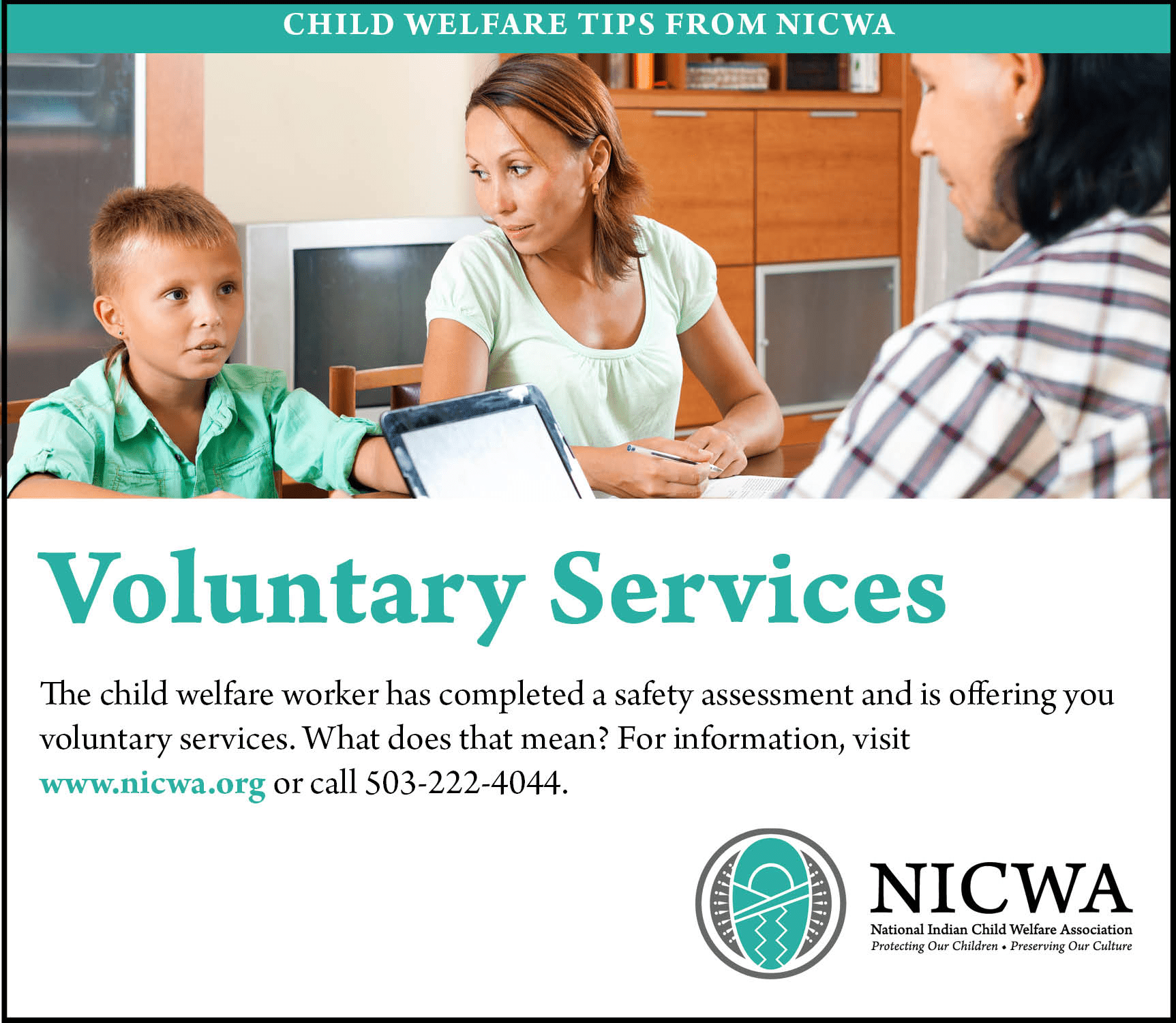This resource is designed to help parents and families who are working with the child welfare system understand what voluntary services or in-home services are and what to expect when they are offered voluntary or in-home services.

Download PDF
Download PDF to print and display the above poster in your tribal child welfare office or in your community.
Download Image
Download Image to share in your emails, newsletters, and social media.
What are voluntary services?
Voluntary services, also known as in-home services, are prevention services provided to families who need support and assistance to resolve safety concerns in order to keep children in their home. Practically speaking, some services may actually be provided outside the home; the key is that services are provided while the child(ren) are still with their parents in their home.
What do I need to know when I am offered voluntary services?
Many tribes and states provide voluntary services after a risk assessment is completed and a decision has been made that children are unsafe but can remain safely in the home with adequate family supports. The main goal of voluntary services is to keep children safely in their home with family, to maintain cultural/community connection by strengthening family resilience.
Does this guarantee that my children will not be removed from my home?
No. Voluntary services are client–led, and it will be up to you to do the work outlined in your case plan. Keep in contact with your caseworker, and use this time to take advantage of all the resources you need to strengthen your family.
Will I have to go to court when I receive voluntary services?
Usually not, but some states require court monitoring of voluntary services plans, and if the issues in the home (threat to the safety of the child) worsen, then the case could turn into an involuntary case where the court will be involved.
Additional resources on voluntary services
In-Home Services (Resources from Children’s Bureau/ACYF/ACF/HHS)https://www.childwelfare.gov/topics/supporting/inhome/
In-Home Services to Strengthen Children and Families (Issue Brief from Children’s Bureau/ACYF/ACF/HHS) https://www.childwelfare.gov/pubPDFs/inhome_services.pdf
How the Child Welfare System Works (Factsheet from Children’s Bureau/ACYF/ACF/HHS) https://www.childwelfare.gov/pubpdfs/cpswork.pdf
